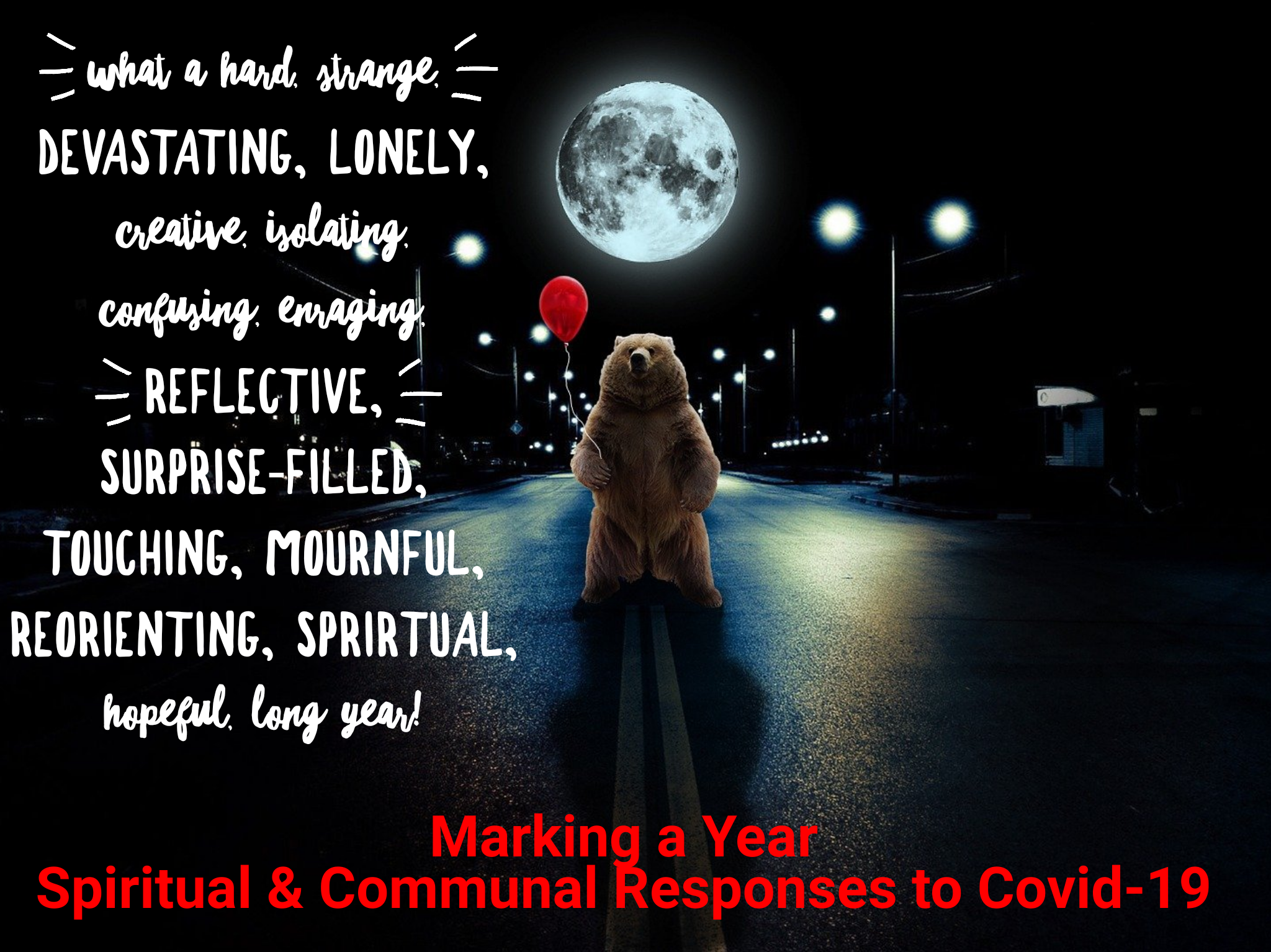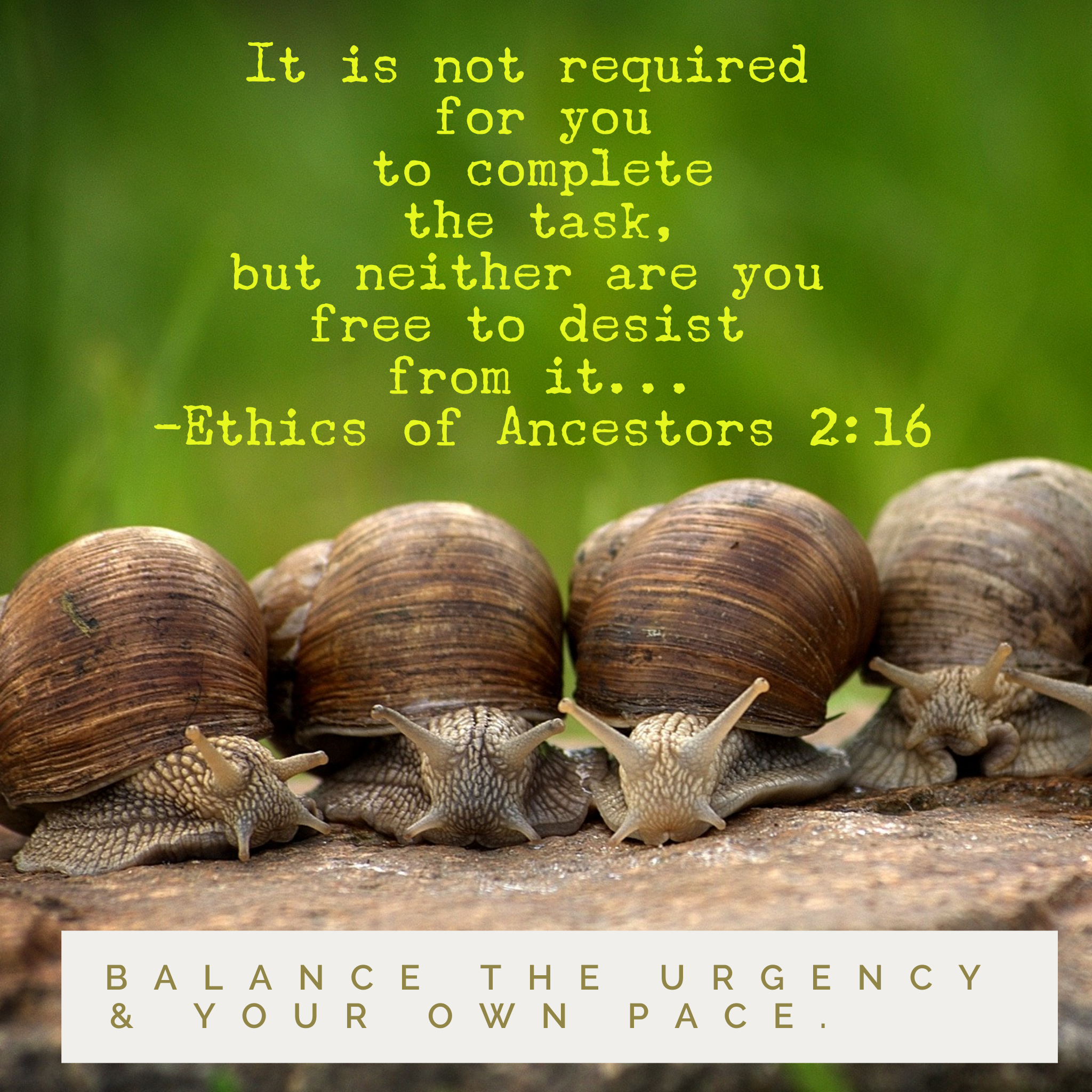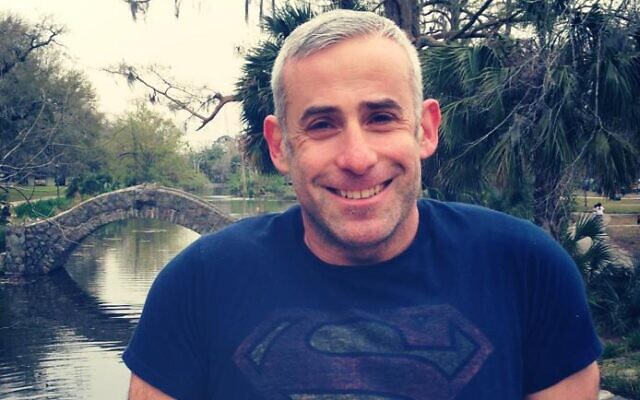Clergy Mark Year of Multifaith, Jewish Facebook Pages
Rabbi Joshua Lesser knew clergy would need extra support during the pandemic.
A day after Purim last year, on March 11, Congregation Bet Haverim Senior Rabbi Joshua Lesser said it was clear that the city and the country were moving into some kind of quarantining or social distancing as the reality of the pandemic began sinking in. “I said to myself, I don’t know if I know how to do this by myself,” as the leader of a congregation. There were so many unknowns at that time.
But Lesser realized that his congregation had nearly three dozen health professionals and it occurred to him, “I might have something to offer maybe 100 of my closest clergy friends and 100 of their friends,” he recalled. Within a week, hundreds of people joined a private Facebook page that became known as “Spiritual and Communal Responses to COVID-19.”

The international members now number close to 8,000, of which about 1,000 are in Georgia. The multicultural members share resources such as approaches to opening their synagogues or churches or mosques, or even new liturgy that they are creating.
“For me, the most important aspect is what an incredibly supportive place for clergy who are challenged by COVID” that the web page became, said Lesser, the creator and founder of the Facebook page.
He talked about the emotional toll that the pandemic has taken on clergy, who not only have to deal with the fears personally and for their families, but also have to be available spiritually for their congregants. “So much of pastoral care is grieving, and there have been so many losses within the congregations,” Lesser said. Clergy and some lay leader-members of the Facebook page have offered workshops. “There have been opportunities to talk about grief and people suggest different ways to offer pastoral care.”
Some clergy were more adept than others with technology, and soon rabbis who had learned how to do Passover via Zoom were advising Christian clergy what they learned, to help with Easter. Some rabbis even said they would be available to help with technology on Sunday for churches.
Then, last year after Passover, a colleague of Lesser’s, Minneapolis Rabbi Michael Latz, and a few other rabbis recognized that the pandemic wasn’t going to end any time soon. They held a Zoom call to discuss how to look at the upcoming High Holy Days. Over 300 rabbis launched the process. Available only for Jews, this Facebook page became known as “Dreaming Up High Holy Days 2020.” It has since been renamed “Dream Up 5781,” looking into the new year.

“Before the High Holy Days last year, there were 2,000 members. Now there are 3,000, including all denominations. Mostly rabbis I didn’t know,” Lesser said. “We became a tight group of moderators, and the folks who participated have been the most generous, supportive and open-sharing group I have ever been a part of. Everyone’s motivation has been to help each other out so that they can serve their congregations. There’s been no judgment.”
According to Lesser, Congregation B’nai Torah Rabbi Josh Heller “took the lead in promoting a conversation with the Zoom company about how to make the technology halachically available.” As Lesser explained, the technology generally shuts down at certain hours. The company had to figure out how to keep it open during Shabbat and the High Holy Days so the more traditional congregations could avail themselves of the technology.
Unlike the multifaith Facebook page, “Atlanta rabbis haven’t been heavily involved in the Jewish clergy Facebook page,” Lesser said. However, in addition to Heller, Congregation Shearith Israel Rabbi Ari Kaiman and Temple Beth Tikvah Rabbi Alexandria Shuval-Weiner “have posted more regularly.”
Congregation Gesher L’Torah Rabbi Michael Bernstein, Lesser added, has been active on both Facebook pages.
Lesser has not handled the moderating of the Facebook pages alone. Rev. Letitia Campbell, an assistant professor in the practice of ethics and society at the Candler School of Theology at Emory University, joined him as co-moderator of the multicultural Facebook page and she brought on some Emory students to help. Lesser explained that Campbell’s partner is a member of his synagogue.

As he looks back at the last year of COVID, Lesser realizes that he spent much of his quarantining at home on the computer, creating the Facebook pages, advising Jewish Federations around the country on handling the High Holy Days, writing, and just generally being over-productive.
“I got fueled” by the experience and “it helped me open up to the fact that I want to make a bigger impact” than just on one congregation. “I have the capacity and desire to do more,” Lesser said. He announced last year that he would be stepping down as the pulpit rabbi. As of May 31, he will become rabbi emeritus at CBH.
“I’m most proud of these Facebook pages. No dollars went into this. They were fueled only by good will,” he said. “This is my understanding of what inclusion looks like.”
Lesser said he believes that “everything I’ve learned about inclusion is from being on the margins.” He was referring to the fact that he – as a gay man — has led a synagogue created by the LGBTQ community.
Taking a deep breath after pointing to his last busy but productive year, Lesser admitted, “I know I need a little bit of down time, maybe two to three months. I know that May 31 is coming soon,” Lesser mused. “I need to go inward to figure out what comes next. I have felt overly responsible.”




comments